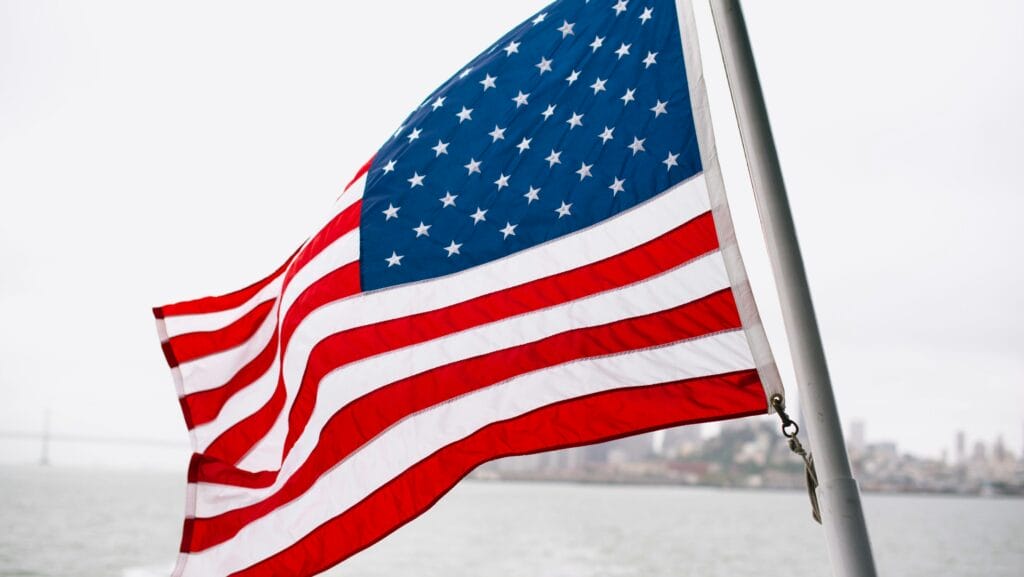
EU, Canada and Mexico stand firm against Trump’s 25% metal tariffs

US President Donald Trump has announced a 25 per cent tariff on all steel and aluminium imports, eliminating previous exemptions and quota agreements for key trading partners, including Canada, the European Union, Mexico, Brazil and South Korea.
The move, which will take effect on 4 March, is intended to bolster domestic metal production but has drawn strong criticism from international leaders and businesses, who warn of economic retaliation and rising costs. The tariffs are expected to significantly impact US industries reliant on these metals, including boat makers, who depend on these metals for manufacturing and could face higher costs.
Trump, who signed the proclamations at the White House, framed the tariffs as a way to boost American industry and national security. “This is a big deal, the beginning of making America rich again,” he said during the signing, adding, “Our nation requires steel and aluminium to be made in America, not in foreign lands.”
New steel and aluminium tariffs extend 2018 measures
The new measures extend the tariffs Trump first introduced in 2018 under Section 232 of a Cold War-era trade law. In addition to raising costs for importers, Trump is also implementing a North American standard requiring steel to be “melted and poured” and aluminium to be “smelted and cast” within the region, a move intended to prevent Chinese and Russian metals from entering the US through intermediary countries.
The decision has been met with swift condemnation from several affected nations, particularly Canada, which is the largest supplier of both steel and aluminium to the US François-Philippe Champagne, Canada’s industry minister, said the tariffs were “totally unjustified,” arguing that Canadian metals are vital to American industries, including defence, shipbuilding, energy and automotive manufacturing. “This is making North America more competitive and secure,” he said. “We are consulting with our international partners as we examine the details. Our response will be clear and calibrated.”
European Commission president Ursula von der Leyen also condemned the move. “Unjustified tariffs on the EU will not go unanswered – they will trigger firm and proportionate countermeasures,” she said. “The EU will act to safeguard its economic interests.”
German Chancellor Olaf Scholz echoed this sentiment, saying: “If the US leaves us no other choice, then the European Union will react to this as one. As the largest market in the world with 450 million citizens, we have the strength to do so.” The EU is considering re-imposing retaliatory tariffs on US products such as motorcycles, jeans and agricultural goods, which were first enacted during Trump’s presidency in response to his initial tariffs on European metals.
Mexico’s economy minister called the tariffs unjustified but did not immediately outline a response plan, while South Korea’s acting president stated that the country’s strategy would be to maintain “a close relationship with the Trump administration.”
Meanwhile, Trump has also threatened additional tariffs on automobiles, semiconductors and pharmaceuticals. “I don’t mind,” he said when asked about potential retaliation from other nations. The tariffs will particularly impact Canada, which accounted for nearly 80 per cent of US primary aluminium imports in 2024. The US remains the world’s largest steel importer, with Canada, Brazil and Mexico among its top suppliers.
The US aluminium industry has been struggling, with production dropping to 670,000 metric tons last year from 3.7 million in 2000. Steel imports accounted for about 23 per cent of US steel consumption in 2023.
Stock markets responded to the news swiftly, with shares of Chinese and European steelmakers declining while US steel and aluminium companies saw gains ahead of the official announcement.
The post EU, Canada and Mexico stand firm against Trump’s 25% metal tariffs appeared first on Marine Industry News.


